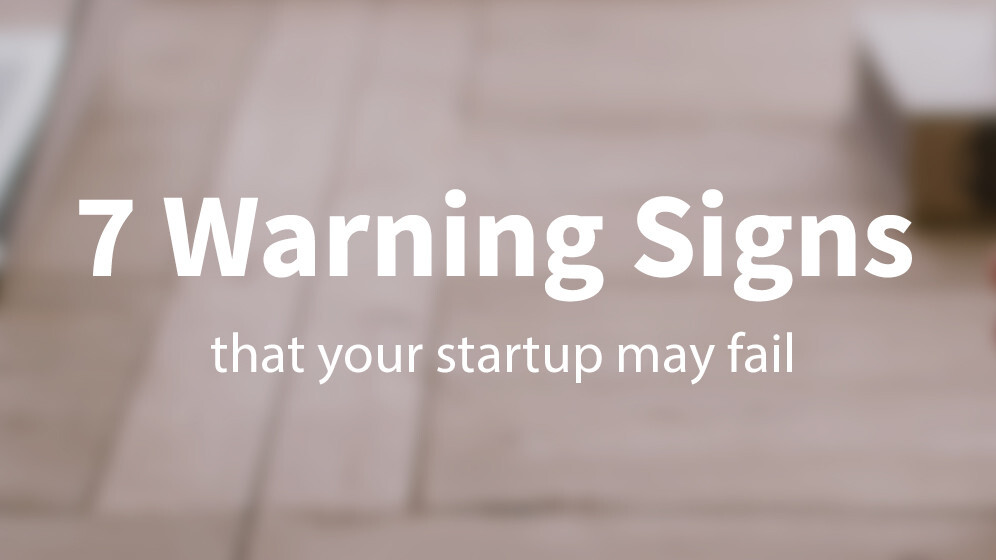
Andrew Condurache is the founder of Closed Club, a startup that archives closed down startup products and key lessons learned
A startup can be seen as a series of trials and errors – some things work others do not, but you keep pushing on. Sometimes you think you are on the right path and everything is going smoothly… then out of nowhere, an unexpected obstacle stares you right in the eye. What do you do?
Below are some early warning signs that you might be in trouble.
1. Your sales cycles or customer acquisition time is getting longer
You may have launched an awesome product, received a lot of buzz and lots people signed up to your mailing list. However, you have noticed your acquisition rates are declining or are starting to take longer than previously.
2. You don’t really know your end user
You created something that you assumed people wanted, people told you they wanted it before you built it, you built it then people said “Cool, I will probably use this one day, good luck with it all!”
You are still trying to work out why a gush of users didn’t come flocking with open arms.
3. Your market is gradually shrinking
Being in a market that has declining demand rates is not a good idea if you want sustainable long term growth. If you have noticed demand decreasing and it’s nothing to do with your product, competitiveness or pricing strategy, it’s time to rethink the industry you’re in.
Declining demand is an early warning sign that you might need to consider diversifying into a new market or pivot away from the product or service you currently offer.
4. You don’t have time to focus on your core product
You understand the product is paramount to your success; however, unexpected things have popped up which means that resources and time are now getting allocated to something else.
When you deviate away from improving upon your core offering, i.e. your product or service, you might find yourself in trouble later on. Competitors might “come out of nowhere” with a better product offering while you were focusing on “more important things.”
5. You have no real plans for monetization
It’s okay if you don’t want to monetize your product immediately or in the near future, but experimenting with potential monetization options early on gives you insight into probable scenarios regarding how you could profit in the future.
Expecting to just flip a switch on when the “time comes” is slightly naive and you might find yourself with unexpected obstacles. Experimentation improves your learning curve and provides greater insight when you do decide to monetize if you have not already done so.
6. Price wars are coming your way
When you start feeling your competitors squeezing your last drip of margin real tight, you’re most likely experiencing a price war. This occurs for many reasons, one of which could be that you are in a commodity market, a market driven purely by price differentiation.
This could be okay if you are prepared to fight back with an ever declining pricing strategy. If you are not in that position, you might find yourself in trouble.
7. You are getting bored of it all
If you are finding that the excitement of running your business is wearing off and the thrill behind creating something of long term value is depreciating, then you’re more than likely in trouble. This is a very early sign of the potential demise of your business.
If you’re not passionate about your company anymore, it will show in your product and the way you manage your business.
Watching your startup decline is not easy, but as many entrepreneurs will tell you, failure teaches you to succeed. Don’t be discouraged if you find yourself in this position – you may just be experiencing a little serendipity and all might work out in the end.
Get the TNW newsletter
Get the most important tech news in your inbox each week.




